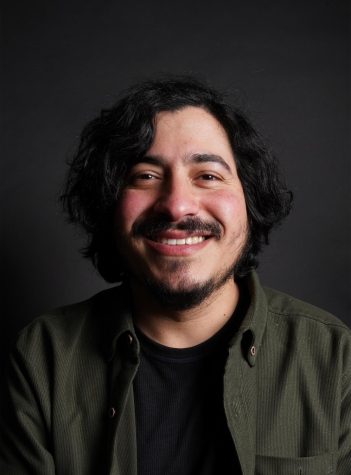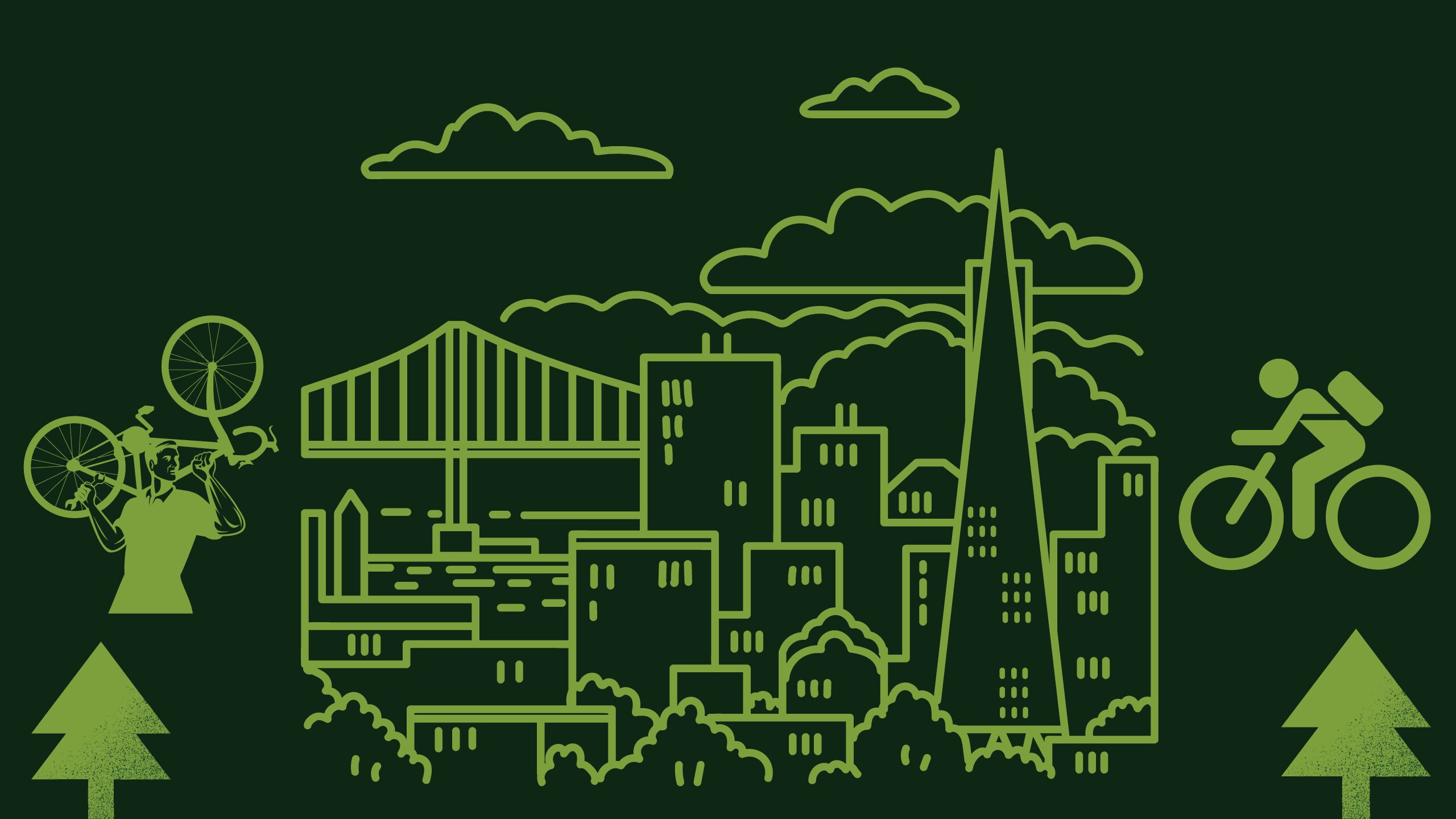
San Francisco bike messengers thrive despite operating in the tech capital of the world
April 11, 2023
For almost 45 years bike messengers have been an integral part of the underground community of San Francisco.
It started as a community that welcomed everyone who wanted an alternative path to a traditional career; however, the movement grew so quickly that messengers directly influenced city infrastructure by advocating for bike lanes and cyclist rights during the nineties.
Messengers have been able to reinvent themselves many times despite the constant threat that technological advances such as fax, email, e-signatures, and now self-driving cars have posed to the survival of the community. Today, messengers in this city are not only surviving but are thriving, listen to our podcast on the current state of bike messengers in San Francisco.
Main Story
Monica: “I feel like every time I like bomb a hill like that, I’m just like, oh, yeah, this is why I continue to do this like I love it so much like the fucking speed. You’re just kind of like, seeing how fast you can go like kind of racing cars a little bit.”
Magnus (H): Bike messengers are the cool kids of any urban environment. They bomb down hills, run red lights, and deliver packages at crazy speeds. But with the uprise of the internet and new delivering technology those kids are in a fierce competition. So, the question is, are bike messengers still relevant in this day and age, and what does the future look like?
My name is Magnus Maury Sørensen, and this is the future of bike messengers in SF
Music: Obliteration
Magnus: So, to find out about this, my colleague, Oscar Palma, and I went out in the streets of SF in search of those cool kids. So, Oscar, did we find any in our search?
Oscar: Yes we did! Walking down the streets of the Tenderloin, Kelsy Munsterman popped out of the door of Candlestick Courier.
Kelsy 1:20: I am a current San Francisco Messenger, current San Francisco Bike Messenger Association President and runner of Candlestick Courier Cooperative. So, candlestick courier is a local mostly food delivery service. We do everything from food, parcels, cargo; any kind of messenger-style stuff within SF. We work with local businesses and charge them like a lower rate compared with competitive business like uber eats, grubhub, doordash.
Magnus: Well, that sounds cool, but what about the business side of it? I have heard that the industry is dying out right?
Oscar: Well, If you take a look at the numbers it does look like that. In 1999 there were around 170.000 messengers in the US. By 2021 only about 70.000 remained. But contrary to this perception, it seems like, it’s not all black and white.
Kelsey 2:05: It’s going pretty good businesses picked up. We are always like, looking for new clients.
Kelsy 19:20: A lot of the companies that I’m familiar with in San Francisco are actually doing pretty well. We’re all just kind of rebounding from the pandemic still.
Oscar: Kelsy did talk a little bit about how the pandemic affected the business
Kelsy 10:21: the pandemic kind of hit pretty hard, and it seems like there’s a lot less messengers, because a lot of companies lost work and ended up not being able to make it through the pandemic.
Magnus: Ahh, I see, so business is not doing as bad as we thought post pandemic, but what about the culture of this community. The messengers that come to mind when we think of them? Those fixie, punked, tattooed people that you see riding around?
Oscar: Well, that is a different conversation because during our reporting we learned that even though the messenger community is still pretty much alive in San Francisco, the culture that we associate with them has taken a toll.
Josh 9:46: On the surface level, anyone who’s interested can see the decline of that typical bike messenger that we’ve come to associate with it. This sort of cultural actor who is closely associated to punk who has a very particular aesthetic, who rides around delivering documents and files, those are definitely declining.
Oscar: That was Josh Widera. A Phd student at USC Annenberg. He recently published the book Sign and Return studying the bike messenger community. Josh himself did messenger work in cities like London, Melbourne, and Los Angeles. Let’s just now hear from the former San Francisco messenger, Justin Bautista.
Justin 20:34: if you take a look at all the places where in San Francisco, wherever messenger are usually hanging out, there are pretty empty these days. I was just at this place one posts during business hours on a Friday, you know, I take my run down there. And then, you know, maybe 10 years ago, they’d be 20 messengers hanging out there smoking a cigarette, waiting for a call to come in on the radio. And the most I’ve seen there in recent months is three
Magnus: So, it sounds a bit like those lifestyle messengers are disappearing, right?
Oscar: Not exactly, he thinks it’s declining but he sees resilience in the community.
Josh 13:30: I think it is adapting. I just came back from research in Europe over the summer where I attended the European cycle messenger championships. And it was a really large event, for many the first one since the COVID pandemic. To me, that event really encapsulated the resilience of this community and kind of pride in the culture that they have built. So I think it will take a long time for that culture and identity to be fully dislodged.
Magnus: So, Oscar. The question now is what is the future of bike messengers in San Francisco?
Oscar: Well, why don’t we hear from Kelsy and Josh on this topic.
Kelsy 11:16: There’s always gonna be a need for like physical things. There’s just certain things you can’t send through a computer file. I think it will always be, kind of prevalent; although, not as much as previously.
Josh 12:21: We’ve also seen a lot of messenger companies move more and more into the kind of market of offering last mile solutions for bigger logistics companies by just serving to the city center and many have also responded to the growing demand in larger cargo, by maybe changing their tools of work and moving away from a fixed gear bicycle towards something that can carry heavy loads on a front rack or even a specialized cargo bike.
Magnus: So what can we take out of all this? Well, it doesn’t look like bike messengers will be disappearing anytime soon, but the classic bike messenger culture, with punk, tattoos and fixies will have a harder time in the future. In San Francisco, we will probably see more and more bike messengers transitioning to food delivery as this seems to be the best option in this day and age.
Music: plays through Magnus until Kelsy.
Kelsy 11:27: there’s like, good hope for, for more people to become aware of how important like cycling is, to our climate and how important it is to be healthy and just to have, you know, a good time.
Magnus: Thank you for joining me in this conversation Oscar.
Oscar: It’s been my pleasure, thank you.


